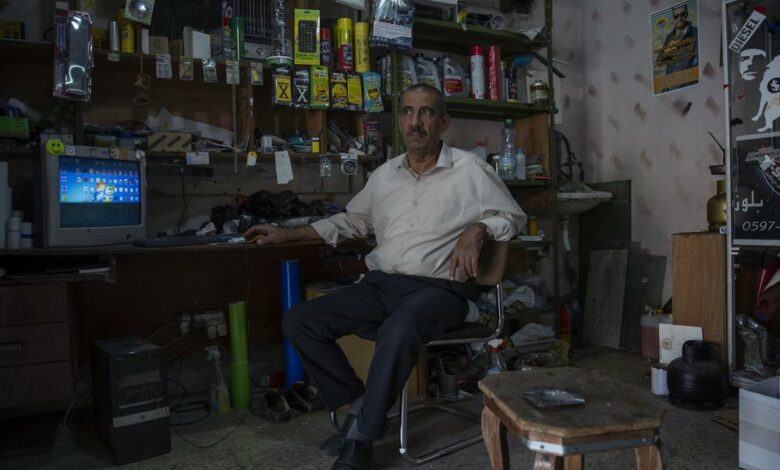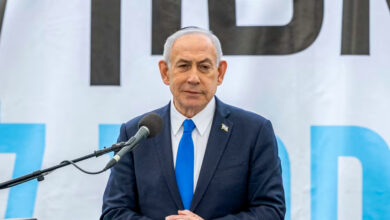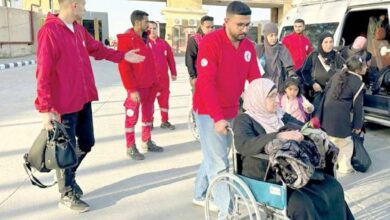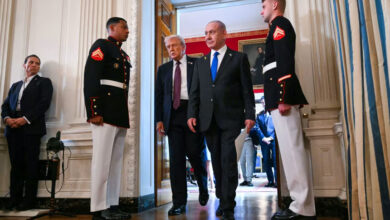
ABU DIS, West Bank (AP) — More than a year after his son was killed by Israeli forces under disputed circumstances in the occupied West Bank, Mustafa Erekat is still seeking his remains.
It is one of dozens of cases in which Israel is holding the remains of Palestinians killed in conflict, citing the need to deter attacks and potentially exchange them for the remains of two Israeli soldiers held by the Palestinian militant group Hamas in the Gaza Strip.
The Palestinians and human rights groups view the practice of holding bodies as a form of collective punishment that inflicts further suffering on bereaved families.
“They have no right to keep my son, and it is my right for my son to have a good funeral,” Erekat said.
The Jerusalem Legal Aid and Human Rights Center, a Palestinian rights group, says Israel is holding the bodies of at least 82 Palestinians since the policy was established in 2015. It says many are buried in secret cemeteries where the plots are only marked by plaques of numbers. Hamas holds the remains of the two Israeli soldiers killed during the 2014 Gaza war in an undisclosed location.
Last year, Israel’s Security Cabinet expanded the policy to include the holding of the remains of all Palestinians killed during alleged attacks, and not just those connected to Hamas. Israel considers Hamas, which rules Gaza, a terrorist group.
Defense Minister Benny Gantz said at the time that holding the remains deterred attacks and would help ensure the return of Israeli captives and remains. The Defense Ministry declined to comment on the policy.
One of the bodies is that of Erekat’s son, Ahmed, who Israeli officials say was shot and killed after deliberately plowing into a military checkpoint in June 2020. Security camera footage shows the car veering into a group of Israeli soldiers and sending one of them flying back. Ahmed steps out of the car and raises one of his hands before he is shot multiple times and falls to the ground.
His family says it was an accident. Mustafa said his son was passing through the checkpoint on his way to the nearby city of Bethlehem to buy clothes for his sister’s wedding later that night. The shooting attracted widespread attention, in part because Ahmed was the nephew of Saeb Erekat, a veteran Palestinian spokesman and negotiator who died last year.
Ahmed was to get married soon, his father said: ”He had a house that was ready for him.”
To this day, he has no idea where his son’s remains are.
Omar Shakir, the Israel and Palestine director at the New York-based Human Rights Watch, said Israel has turned “corpses into bargaining chips.” The policy is “deliberately and unlawfully punishing the families of the deceased, who are not accused of any wrongdoing,” he said.
Israel has a long history of exchanging prisoners and remains with its enemies. In 2011, it traded more than 1,000 Palestinian prisoners for an Israeli soldier who had been captured by Palestinian militants five years earlier and was being held in Gaza.
In 2008, it traded five Lebanese prisoners, including a notorious militant, and the remains of nearly 200 Lebanese and Palestinians killed in fighting, for the remains of two Israeli soldiers captured by the Lebanese militant Hezbollah group two years earlier.
Egypt has been mediating negotiations over a similar agreement that would return the remains of the two soldiers, as well as two Israeli civilians believed to be alive, held by Hamas in Gaza.
In the meantime, the Erekats and other Palestinian families must turn to Israel’s Supreme Court in a process involving multiple hearings that can drag on for years.
The court denied a recent appeal by the Erekats, citing confidential information submitted by the military. Mustafa Erekat says the system is rigged. He accused the court of dragging its feet until the policy on holding the remains was expanded and then relying on secret evidence.
Mohammed Aliyan, spokesman for six Palestinian families who filed a Supreme Court petition for the return of their relatives’ bodies in 2016, said the judges initially sided with the families before an appeal from the military.
“They always go along with the military’s demands,” Aliyan told The Associated Press, “They are afraid to take any decision against them.”
Liron Libman, an expert on military law at the Israel Democracy Institute, said there are situations where certain pieces of information can’t be made public for fear of exposing protected sources or special operations.
“Each side has the right to request a postponement of the hearing, and the court will accept the request if it believes it is for a justifiable reason,” Libman told the AP.
Even if a family’s petition is successful, locating relatives’ bodies for exhumation can pose further challenges, especially in cases when bodies were buried decades ago.
Rami Saleh, the director of Jerusalem Legal Aid and Human Rights Center, said his organization has dealt with cases where Israeli authorities were unable to locate bodies and also those where Palestinian family members needed to take DNA tests to confirm the remains of a relative.
Mustafa said he has not given up hope and intends to challenge the Supreme Court’s decision. In the meantime, he and Aliyan, the spokesman for the other families, attend weekly sit-ins calling for the release of all bodies held by Israeli authorities.
“The feeling of not being able to bury your relative’s body is more painful than their death,” Aliyan said.




